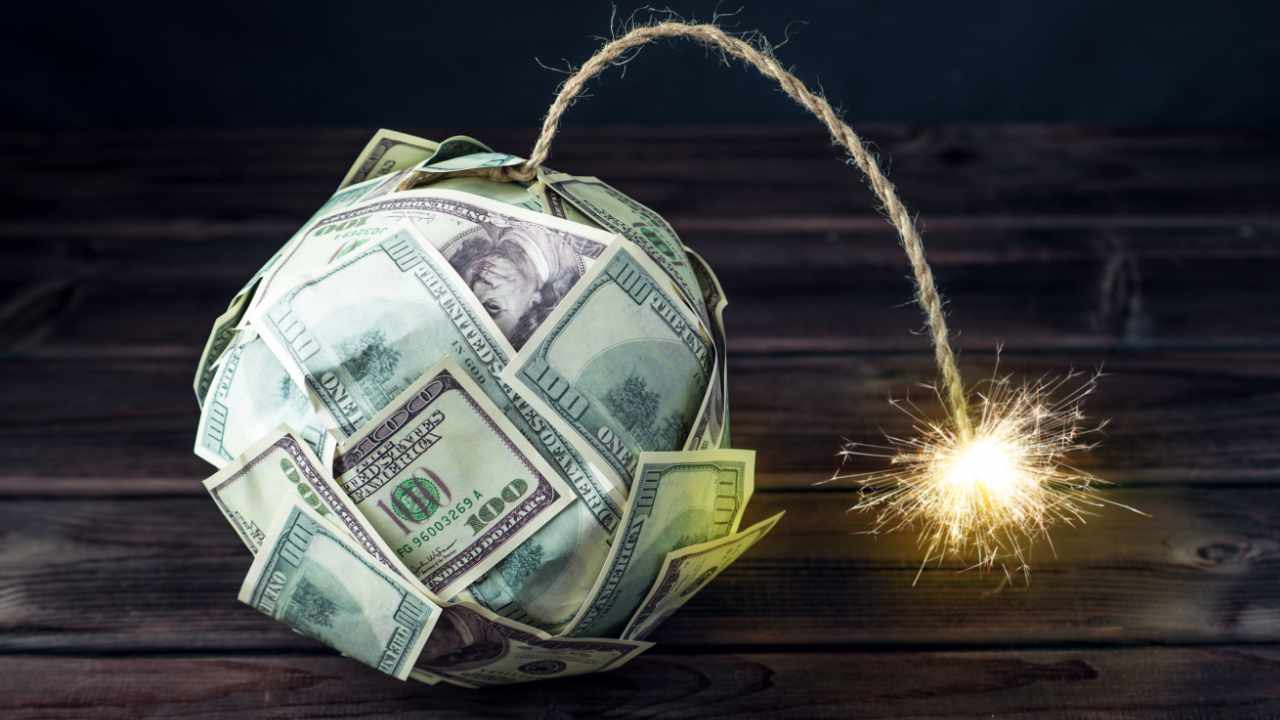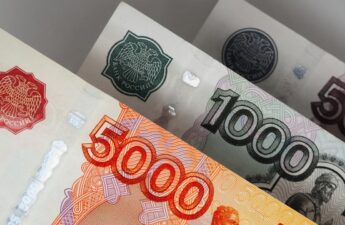Economist Peter Schiff has warned of “the biggest economic disaster” in U.S. history. He stressed that we are on the cusp of a financial crisis and “it’s going to be much bigger than the last.” In addition, he said the U.S. dollar is being debased in order to fund the bank bailouts.
Peter Schiff Foresees ‘Biggest Economic Disaster’ in US History
Economist and gold bug Peter Schiff shared his warnings about the U.S. economy, the banking crisis, and where inflation is headed on NTD News Monday. Commenting on Federal Reserve Chairman Jerome Powell claiming that the U.S. banking system is sound and resilient, Schiff exclaimed: “It’s not sound at all. It’s a house of cards that’s starting to collapse.”
Schiff explained: “Thanks to the mistakes the Fed has made since the 2008 crisis, we have a much bigger bubble now. The Fed caused the bubble that led to the financial crisis of 2008, and then they inflated a bigger bubble to try to paper over those mistakes and kick the can down the road so that we wouldn’t have to deal with the full consequences of resolving all those mistakes.” The economist opined:
Of course, we just compounded the problem with bigger mistakes and now the U.S. economy is poised on the biggest economic disaster in its history.
Schiff sees the recent collapses of major banks, including Silicon Valley Bank and Signature Bank, as the start of the next financial crisis. “That’s exactly what’s happening now. It is a banking crisis, and banks are financials. I think people are reluctant to call it a financial crisis because they don’t want to evoke the memories of 2008 and they don’t want to make any comparisons. They don’t want to acknowledge that,” he opined, cautioning:
They are dismissing all the early signs of a major financial crisis. But make no mistake, we’re on the cusp of one. And it’s going to be much bigger than the last.
According to the economist, banks are ill-equipped to handle a combination of a significant economic downturn and a surge in inflation. “So, if we have high inflation and a recession at the same time, banks are going to fail,” he said.
As inflation diminishes the value of the U.S. dollar, people will seek to withdraw their money from banks as they won’t be able to offer an interest rate that can offset the loss, Schiff described, warning:
Of course, when people want to get their money out of banks, the money isn’t there. So the only way people can get their money is if the Fed prints it. But if the Fed prints it, it just destroys even more of the value. So, it accelerates the momentum for a spiraling inflation … The dollar is being debased in order to fund the bank bailouts.
Noting that the Federal Reserve increased its balance sheet by nearly $400 billion within a span of two weeks, Schiff cautioned: “That’s inflation. And so, when you do that, you destroy the value of all the money that’s already in circulation. So, Americans are going to pay, not because they are taxpayers, but because they are US dollar owners and US dollar earners. Everybody’s paycheck is going to be reduced in value because of the bank bailouts.” The gold bug pointed out:
These bailouts are endangering everybody’s bank deposits, even the banks that are solvent.
“Now it’s inflation that is the risk. And so it doesn’t matter if your bank fails. You’re still going to lose. In the event that your bank failed, you lose your money. But now, because the government won’t let the banks fail, everybody who has a bank account is going to lose purchasing power,” Schiff concluded.
Do you agree with Peter Schiff? Let us know in the comments section below.
![]()
Kevin Helms
Image Credits: Shutterstock, Pixabay, Wiki Commons
Disclaimer: This article is for informational purposes only. It is not a direct offer or solicitation of an offer to buy or sell, or a recommendation or endorsement of any products, services, or companies. Bitcoin.com does not provide investment, tax, legal, or accounting advice. Neither the company nor the author is responsible, directly or indirectly, for any damage or loss caused or alleged to be caused by or in connection with the use of or reliance on any content, goods or services mentioned in this article.


